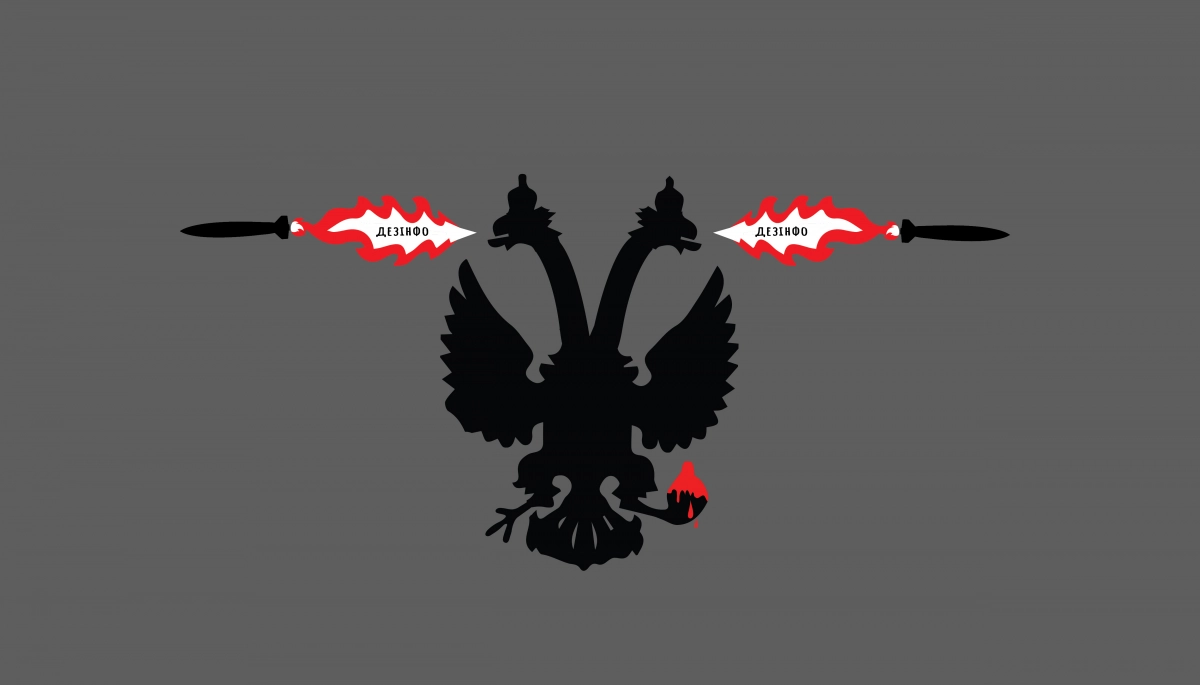

Українською читайте тут.
The violation of human rights by Russia extends beyond the use of forceful tactics such as missile attacks, infiltrating the realm of informational warfare and falsehoods.
The constraints imposed by disinformation on the public’s access to truthful information, the freedom to cultivate and voice opinions, and the overall trust in democratic institutions, amount to a de facto violation of human rights. Additionally, they incite violence, justify war crimes, and excuse crimes against humanity. The long-term disinformation campaign perpetrated by Russia against Ukraine constitutes a human rights violation by jeopardizing the safety and lives of people.
Analysts from Detector Media collaborated with various civil society organizations such as Internews Ukraine, the Institute of Mass Information, Textн, the Ukrainian Helsinki Human Rights Union, and Vox Ukraine to produce the DT Institute’s report “Disinformation as a Human Rights Violation”. This report was compiled and presented to the UN Human Rights Council as part of the Universal Periodic Review of the Russian Federation. The objective of this move is to amplify global pressure on the aggressor country and highlight the issue of disinformation not merely as a component of hybrid warfare but as a flagrant violation of human rights.
Why Disinformation Is a Human Rights Violation
In the context of international law, disinformation and propaganda equate to an infringement of the right to freedom of expression, particularly when such tactics foment discrimination or animosity towards certain groups, jeopardize public health, destabilize democratic societies, or inhibit individuals’ capacity to acquire and disseminate information. Actions of this nature contravene a multitude of international human rights agreements, notably Article 19 of the Universal Declaration of Human Rights (UDHR) and Articles 19 and 20 of the International Covenant on Civil and Political Rights (ICCPR).
The Russian propaganda mechanism consistently disseminates disinformation about various communities, casting them in a derogatory light and attempting to undermine their credibility. For instance, Russian propagandists cultivate a disparaging image of Ukrainian women both domestically and internationally, characterizing them as sex workers who venture abroad exclusively for monetary gain. Such assertions exacerbate gender inequality and stigmatize women. Russian propaganda also disseminates disinformation about children, exploiting sensitive aspects of their lives and well-being to further its political agenda. Specifically, the proclamations about saving them from “Ukrainian Nazi punishers” are merely a facade for the forced deportation of children from Ukraine, an act that both the Ukrainian authorities and the International Criminal Court recognize as indicative of genocide. Hence, it remains uncertain whether the Ukrainian children illicitly taken by Russia will ever be reunited with their parents.
Russian propagandists infringe on fundamental human rights by disseminating fake stories about evacuations from war-torn cities, false narratives about the Russian military’s actions to protect them, and lies about hospital operations amid hostilities. Such disinformation subjects people to physical harm as believing in it could lead individuals to remain in dangerous cities or potentially expose themselves to come under fire due to inaccurate information about evacuation from a city or village.
What does it look like in practice?
Intentional Discrediting of the Mandatory Evacuation Introduced by the Ukrainian Authorities
In August 2022, the Cabinet of Ministers of Ukraine decreed a mandatory evacuation from areas on the frontline due to the destruction of vital infrastructure in the region and the consequent inability to heat it during the winter. Russian propaganda launched a slew of fictitious and manipulative assertions in an attempt to sow distrust in the government’s initiative, weaken faith in the government overall, and breed a climate of fear and uncertainty. The propagandists contended that the loss of utilities — gas, electricity, and water — was not a result of the Russian army’s bombardments but a deliberate act by the Ukrainian authorities to compel civilians to leave the area. They alleged that the Ukrainian authorities were “clearing” the frontline regions of inhabitants to enable Ukrainian soldiers to freely loot and destroy civilian infrastructure, thereby preventing it from falling into Russian hands. The propagandists also maintained that Ukraine had not adequately prepared for the evacuees and would be transporting them via train “to nowhere.”
Leaving the frontline region is literally a matter of survival. Hence, such messages represent a blatant attempt to manipulate reality and scare civilians into rejecting evacuation, leaving them at risk of enduring months in unheated bomb shelters, putting their health and lives in jeopardy.
Exploiting the Issue of Child Safety to Justify Deportation
The Russian propaganda apparatus cunningly exploits the sensitive subject of child safety to evade accountability for this breach of human rights. Key manipulative assertions include: the “children of the Donbas” are Russian children; Ukraine and the West are endangering the “children of the Donbas,” warranting their “rescue” (deportation to Russia), and the full-scale invasion is revenge for the “children of the Donbas”. Further insights into how propaganda manipulates the term “children of the Donbas” and the dangers of using it can be found here.
The illegal deportation of Ukrainian children from occupied territories to Russia is recognized as a war crime by the International Criminal Court. Domestic and international bodies perceive this as Russia’s effort to forcefully relocate children from one national group to another, eradicating their Ukrainian identity — a move indicative of genocide.


